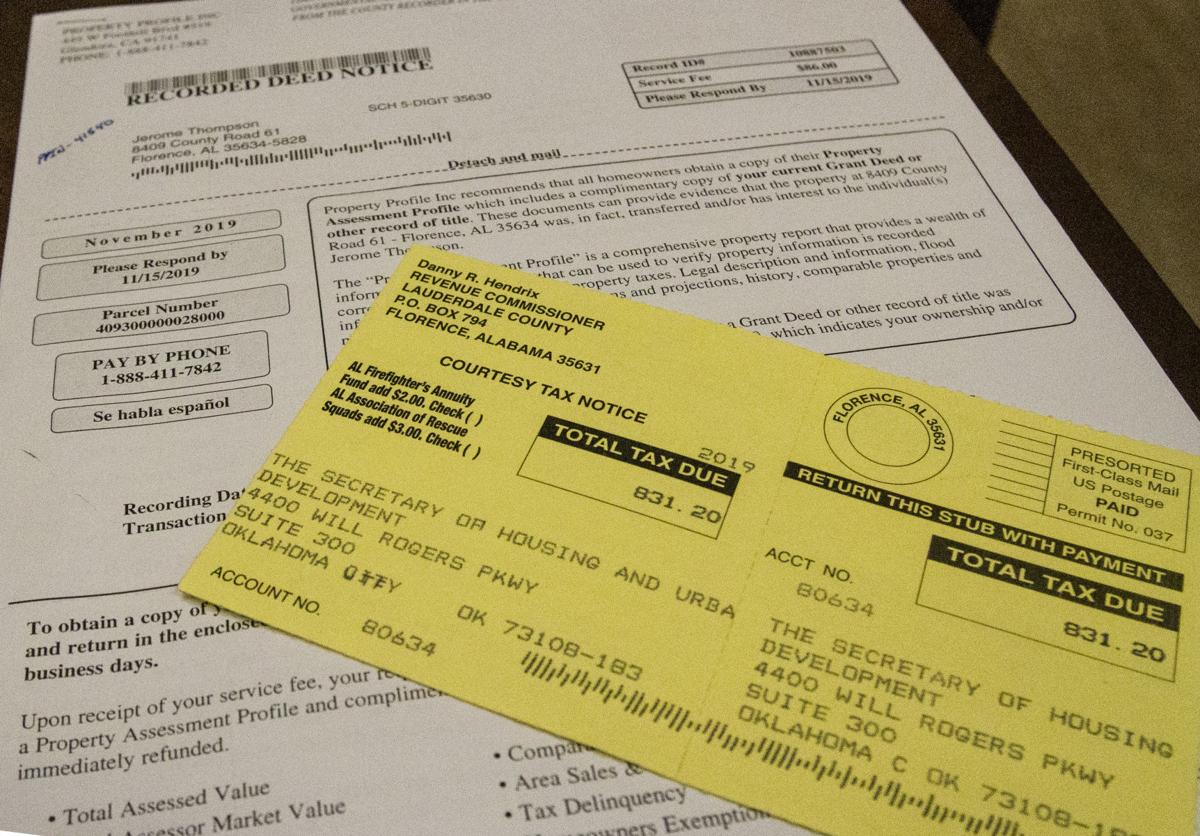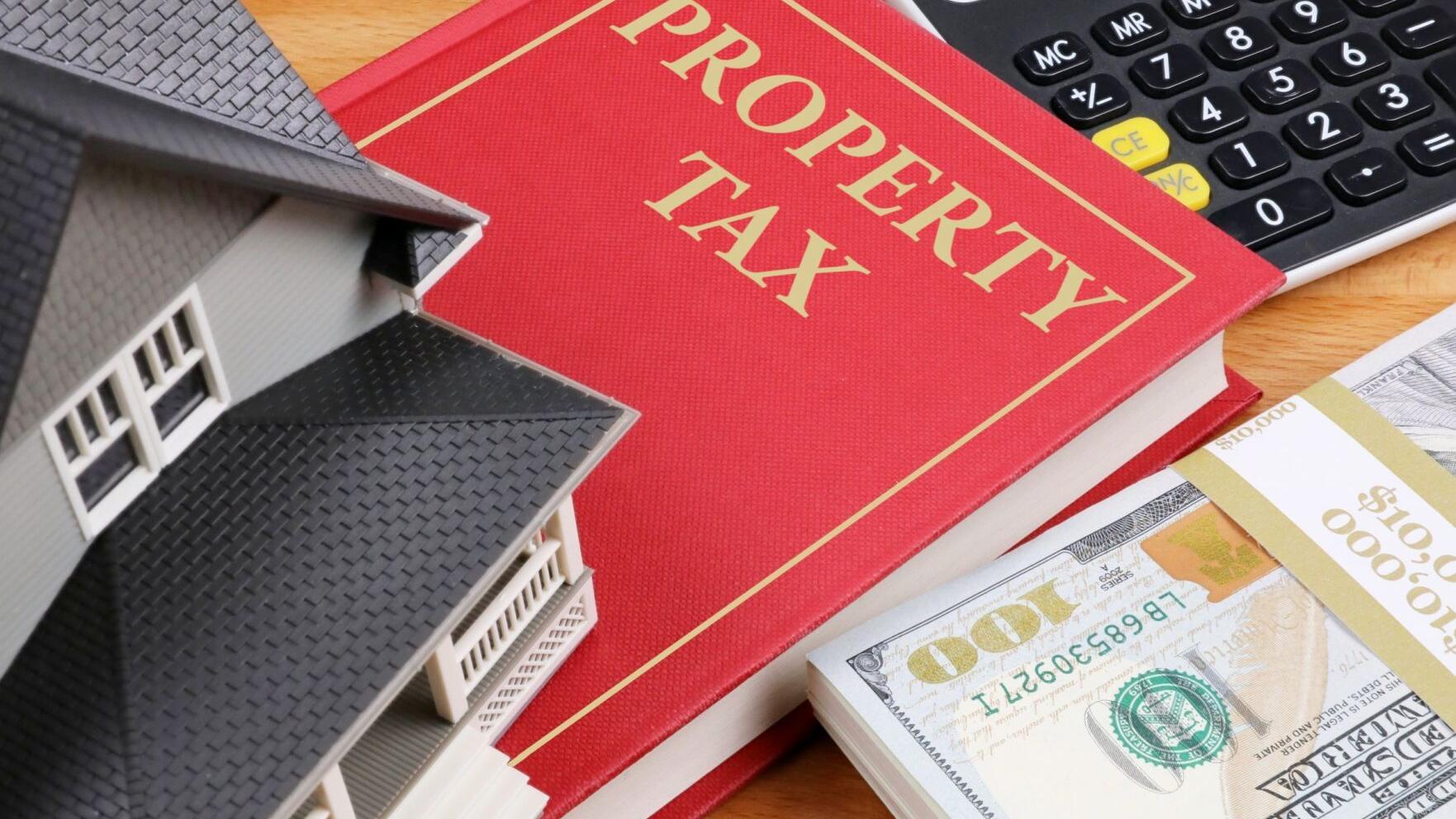Home>Home Maintenance>How To Challenge A Property Assessment


Home Maintenance
How To Challenge A Property Assessment
Modified: March 6, 2024
Learn how to challenge a property assessment and save on your property taxes. Our expert tips and resources on home maintenance will help you navigate the process.
(Many of the links in this article redirect to a specific reviewed product. Your purchase of these products through affiliate links helps to generate commission for Storables.com, at no extra cost. Learn more)
Introduction
When it comes to owning a property, it’s essential to understand the concept of property assessments. A property assessment is an evaluation of the value of a property for tax purposes, performed by a local government agency. This assessment determines the amount of property taxes that the owner will be required to pay.
While property assessments are meant to be fair and accurate, there may be instances where you believe that your property assessment is too high. This could result in you paying more in property taxes than necessary. In such cases, it is important to know your rights and options to challenge a property assessment.
Challenging a property assessment can be a complex process, but by following the right steps and gathering the necessary evidence, you can increase your chances of success. This article will guide you through the process of challenging a property assessment and help you understand the key considerations along the way.
Key Takeaways:
- Understanding Property Assessments
Property assessments determine property taxes and may have errors. Review your assessment, gather evidence, and consult professionals to challenge an unfair valuation. - Challenging the Assessment
If you believe your property assessment is unfair, gather evidence, prepare a strong case, and consider appealing the decision. Stay organized, respectful, and seek professional guidance.
Understanding Property Assessments
Before delving into the process of challenging a property assessment, it’s essential to have a clear understanding of what property assessments entail. A property assessment is an evaluation conducted by a local government agency to determine the value of a property for taxation purposes.
Assessments are typically based on a variety of factors such as the property’s size, location, building condition, and recent sales of comparable properties in the area. The goal of a property assessment is to establish an accurate and fair value that reflects the market value of the property.
The assessed value is then used to calculate the amount of property taxes owed by the property owner. In most jurisdictions, property taxes are a crucial source of revenue for local governments and are used to fund various public services and infrastructure projects.
It’s important to note that property assessments are generally performed periodically and may vary depending on your location. Some jurisdictions conduct assessments annually, while others may have longer assessment cycles, such as every three or four years.
Property assessments are typically carried out by trained assessors who are knowledgeable about the local real estate market. These assessors may use different methods and techniques to determine the value of a property, such as comparing it to similar properties in the area or considering recent market trends.
It’s also worth mentioning that property assessments are not always perfect. Assessors may make mistakes or overlook certain factors that could impact the value of a property. As a property owner, it’s essential to review your assessment carefully to ensure its accuracy and fairness.
By having a clear understanding of how property assessments work, you can effectively evaluate whether your assessment is accurate and if it’s worth pursuing a challenge. The next section will explore some of the reasons why you may consider challenging a property assessment.
Reasons to Challenge a Property Assessment
Challenging a property assessment is not a decision that should be taken lightly. It requires time, effort, and a solid justification for why you believe your assessment is incorrect. Here are a few common reasons that may warrant a challenge:
- Significant increase in assessment: If your property assessment has increased by a substantial amount compared to previous years, it may be worth investigating whether the increase is justified. This could be due to factors such as improvements in the property or changes in the local real estate market. However, if the increase seems disproportionate or unjustified, it may be a valid reason to challenge the assessment.
- Different assessment compared to similar properties: Assessments should ideally be consistent and fair. If you notice that your property assessment is significantly higher than comparable properties in your area with similar features and conditions, it may indicate an error or an unfair assessment. Gathering evidence of the comparable properties’ assessments can strengthen your case when challenging the assessment.
- Errors in property information: Assessors rely on accurate property information when conducting assessments. However, mistakes can happen, such as incorrect property measurements, inaccurate property condition, or erroneous information about improvements made to the property. If you can provide evidence that there are errors in the property information used for your assessment, it can be a valid reason to challenge the assessment.
- Changes in property usage: If there have been significant changes in how your property is being used since the last assessment, it can impact the assessment value. For example, if a commercial property has been converted into residential units, the assessment should reflect the change in usage. Failure to do so could result in an inaccurate assessment and higher property taxes.
- Special circumstances or exemptions: There may be specific circumstances or exemptions that apply to your property, which could affect the assessment. For instance, if your property is eligible for agricultural or historic preservation exemptions, it could result in a lower assessment and tax liability. It’s important to be aware of any special circumstances or exemptions that may be applicable to your property and ensure they are properly taken into account in the assessment.
These are just a few examples of potential reasons to challenge a property assessment. It’s important to carefully review your assessment, gather evidence, and consult with professionals, such as real estate agents or property assessors, to determine the validity of your challenge.
The next sections will guide you through the process of gathering evidence, preparing your challenge, and filing it with the appropriate authorities.
Gather Evidence and Documentation
Before challenging a property assessment, it’s crucial to gather sufficient evidence and documentation to support your case. This evidence will help demonstrate any discrepancies, errors, or unfairness in the assessment. Here are some key steps to follow when gathering evidence:
- Review your property assessment: Carefully examine your property assessment notice and compare it to previous assessments. Look for any discrepancies or significant changes that you believe are unjustified.
- Obtain a property card: Contact your local property assessor’s office to request a copy of your property card. This card contains detailed information about your property, including its dimensions, condition, and any improvements. Review the property card to ensure its accuracy and note any errors or discrepancies.
- Gather information on comparable properties: Research and gather information on similar properties in your area that are assessed at a lower value than yours. This can include properties with similar size, condition, and location. Collect documentation such as property records, recent sales data, and assessments of these comparable properties to demonstrate any inconsistencies in the assessments.
- Document property condition: Take photographs or videos of your property to document its current condition. This can be particularly helpful if there are any structural issues, damages, or maintenance problems that may affect the assessment value. Make sure to capture clear and detailed images that support your argument.
- Keep records of property improvements: If you have made significant improvements to your property, gather the receipts, permits, and any other documentation related to these improvements. These records can help justify a higher assessment but should also be taken into account if there is evidence of inaccurate or incomplete information that may have inflated the assessment.
- Consult with professionals: Seek advice from professionals such as real estate agents or property assessors who are experienced in challenging property assessments. They can provide valuable insights, help identify any flaws in the assessment, and guide you in gathering the necessary evidence.
Remember to organize and maintain all the evidence and documentation you gather. Having a well-organized and comprehensive collection of evidence can significantly strengthen your case when challenging the property assessment.
Once you have gathered the necessary evidence, you can proceed to the next steps of preparing and filing your challenge, which will be discussed in the following sections.
Preparing Your Challenge
Once you have collected the evidence and documentation to support your case, it’s time to prepare your challenge to the property assessment. Here are some important steps to follow:
- Understand the deadline: Check the deadlines set by your local government for challenging a property assessment. Missing the deadline could result in your challenge being dismissed. Make sure you have enough time to gather evidence and prepare your case.
- Review the assessment process: Familiarize yourself with the assessment process in your jurisdiction. Understand the criteria used for assessments and any rules or regulations that apply. This knowledge will help you build a stronger argument for your challenge.
- Organize your evidence: Arrange your evidence and documentation in a logical order. Create a clear and concise summary of your arguments and supporting evidence to present your case effectively. Highlight any inconsistencies, errors, or unfairness you have discovered during your review.
- Prepare a written statement: Write a concise and clear statement that outlines the grounds for your challenge. Explain why you believe the assessment is incorrect, providing specific examples and referencing the evidence you have gathered. Be sure to maintain a professional and respectful tone throughout your statement.
- Request a meeting with the assessor: In some jurisdictions, it may be beneficial to schedule a meeting with the property assessor to discuss your concerns. This can give you an opportunity to present your case in person and potentially reach a resolution before moving forward with a formal challenge.
- Seek professional advice: Consider consulting with professionals experienced in property assessments, such as appraisers or attorneys specializing in property law. They can provide expert guidance, review your case, and offer recommendations for strengthening your challenge.
Remember, the key to preparing a strong challenge is to present a compelling argument supported by evidence. Be organized, concise, and professional in your approach.
Once you have prepared your challenge, it’s time to move on to the next step: filing the challenge with the appropriate authorities. This will be discussed in the following section.
Read more: What Is Property Assessment
Filing the Challenge
After you have prepared your challenge to the property assessment, the next step is to file the challenge with the appropriate authorities. Here are the key steps to follow when filing your challenge:
- Obtain the necessary forms: Contact your local tax assessment office or taxation department to request the proper forms for filing a property assessment challenge. They will provide you with the required documentation and instructions to proceed.
- Complete the forms accurately: Fill out the forms carefully, providing all the necessary information as requested. Pay close attention to any specific requirements or guidelines provided by the authorities to ensure your challenge is considered valid.
- Attach supporting documents: Include all the evidence and documentation you have gathered to support your case. This may include property records, comparable property assessments, photographs, improvement receipts, and any other relevant materials. Make sure to make copies of all the documents you submit and keep them for your records.
- Submit the completed forms: Once you have completed the forms and gathered all the necessary supporting documents, submit them to the designated tax assessment office or taxation department. Follow any specific instructions provided, such as submitting the forms online, by mail, or in person.
- Pay any required fees: Some jurisdictions may require a filing fee to process your challenge. Make sure to include the required payment along with your submission. If you are unsure about any fees, contact the authorities to clarify the payment process.
- Keep a record of your submission: Make a note of the date and method of your submission, as well as any confirmation or receipt you receive for your challenge. These records will be valuable in case any issues arise or for future reference regarding your challenge.
Once you have submitted your challenge, the authorities will review your case and schedule a hearing. The next section will provide guidance on how to present your case effectively during the hearing.
It’s important to note that the process and requirements for filing a property assessment challenge may vary depending on your jurisdiction. Be sure to consult the specific guidelines and regulations provided by your local tax assessment office or taxation department.
Research comparable properties in your area to determine if your assessment is accurate. Look for similar size, age, and condition of homes that have sold recently. If your assessment seems high, consider filing an appeal with evidence to support your case.
Presenting Your Case
Once your property assessment challenge has been filed and a hearing has been scheduled, it’s time to prepare for presenting your case. This is your opportunity to present your arguments and evidence to the authorities who will make a decision regarding your challenge. Here are some important steps to follow when presenting your case:
- Review your evidence: Review the evidence and documentation you gathered during the preparation stage. Familiarize yourself with the key points and arguments you want to bring forward during the hearing.
- Prepare a clear and concise presentation: Create a clear and organized presentation that highlights the main arguments of your challenge. Use visual aids such as slides or charts to support your points and make your case more compelling.
- Be prepared to explain your evidence: Anticipate questions or challenges that may arise during the hearing and prepare to explain your evidence thoroughly. Understand the details behind the documents you have presented and be ready to provide explanations or clarifications when needed.
- Stay focused and concise: During the hearing, it’s important to stay focused and concise in your presentation. Be clear in your arguments and avoid unnecessary details or tangents that may divert from the main points of your case.
- Respectfully address opposing arguments: Be prepared to hear and respond to opposing arguments presented by the authorities or any other party involved in the hearing. Maintain a respectful and professional demeanor when addressing these arguments and counter them with valid evidence or logical reasoning.
- Remember to remain calm and composed: It’s natural to feel nervous during a hearing, but try to remain calm and composed throughout the process. This will help you present your case more effectively and demonstrate confidence in your arguments.
- Listen attentively to the authorities: Pay close attention to the questions or comments raised by the authorities during the hearing. Show respect by actively listening and responding thoughtfully to their inquiries. This will demonstrate your cooperation and willingness to engage in a constructive dialogue.
- Keep a record of the hearing: Take notes during the hearing to document any important points or decisions made by the authorities. This record will be useful for future reference, especially if you decide to appeal their decision.
Remember, the goal of presenting your case is to provide a compelling argument supported by evidence, and to convey your belief that the property assessment is inaccurate or unfair. Stay organized, focused, and respectful throughout the process, and present your case in a clear and concise manner.
After presenting your case, the authorities will make a decision regarding your property assessment challenge. The next section will explain what to expect and how to understand their decision.
Attending the Hearing
Attending the hearing for your property assessment challenge is a crucial step in the process. This is where you will have the opportunity to present your case, respond to any inquiries or arguments raised by the authorities, and advocate for a fair and accurate assessment. Here are important considerations when attending the hearing:
- Come prepared: Arrive at the hearing well-prepared, with all your evidence and documentation organized and easily accessible. Review your case beforehand to refresh your memory and ensure you are confident in presenting your arguments.
- Dress professionally: Dress appropriately for the hearing in order to convey a sense of professionalism and respect for the process. Your appearance can contribute to the overall impression you make on the authorities.
- Arrive early: It’s advisable to arrive early for the hearing to familiarize yourself with the surroundings and allow time to settle any nerves. This will also demonstrate punctuality and a commitment to the process.
- Listen attentively: Pay close attention to the proceedings and actively listen to what the authorities and other involved parties have to say. This will help you better understand their perspectives and respond effectively to any questions or arguments that may arise.
- Present your case clearly and confidently: When presenting your case, speak clearly and confidently. Use concise language and avoid unnecessary jargon. Back up your statements with evidence and provide logical explanations to support your arguments.
- Remain calm and composed: It’s natural to feel nervous during the hearing, but try to remain calm and composed throughout the process. Keep your emotions in check, maintain a professional demeanor, and avoid unnecessary confrontations or disagreements.
- Address the authorities respectfully: Show respect towards the authorities presiding over the hearing. Address them politely and use appropriate titles or formalities. Engage in a constructive dialogue, even if there are disagreements or differences of opinion.
- Be open to discussion: Be open to discussing your case and potential solutions or compromises. The authorities may provide insights or suggestions during the hearing. Consider their perspectives and be willing to find common ground if it leads to a fair and reasonable outcome.
- Take notes: Take notes during the hearing to record any important statements, decisions, or directives from the authorities. These notes will be valuable for reference and may be useful if you decide to appeal their decision in the future.
- Respect the process and the authorities’ decision: Regardless of the outcome, respect the process and the decision made by the authorities. Understand that their role is to evaluate the evidence and arguments presented and make a determination based on their expertise in property assessments.
Remember, attending the hearing is your chance to advocate for a fair and accurate assessment. Stay focused, confident, and respectful throughout the process, and present your case in a clear and compelling manner.
Once the hearing has concluded, the authorities will make a decision regarding your property assessment challenge. The next section will explain how to understand their decision and what options you have for further action.
Understanding the Decision
After attending the hearing for your property assessment challenge, the authorities will review the evidence presented and make a decision regarding the validity of your challenge. Understanding their decision is crucial in determining your next steps. Here are some key points to consider when trying to understand the decision:
- Review the explanation: The authorities will provide an explanation of their decision, outlining the factors they considered and the rationale behind their determination. Carefully review this explanation to gain insight into their perspective and the basis for their decision.
- Assess the outcome: Determine whether the decision is in your favor or not. If the assessment is adjusted or reduced to a more acceptable value, it means your challenge was successful. If the assessment remains unchanged, it indicates that the authorities did not find sufficient evidence to support your case.
- Consider the reasoning: Take note of the reasoning provided by the authorities in their decision. Understand the factors they considered, including the evidence presented, arguments made, and any relevant laws or regulations. This will help you evaluate the strength of your case and identify potential areas for improvement if you decide to appeal.
- Consult with professionals: Seek professional advice from experts, such as real estate agents, property assessors, or attorneys specializing in property law. They can review the decision and provide insights into its implications and whether it is worth pursuing further action.
- Weigh the costs and benefits: Consider the potential costs and benefits of appealing the decision. Assess the impact of the assessment on your property taxes, the likelihood of success in an appeal, and the associated time and expenses involved. This evaluation will help you determine the best course of action.
- Evaluate the evidence: Reflect on the evidence you presented during the hearing. Did you provide all relevant documentation and arguments? Were there any weaknesses or gaps in your case? Identifying areas for improvement can help strengthen your position if you decide to appeal.
- Understand the appeals process: Familiarize yourself with the appeals process in your jurisdiction. Determine the deadlines, requirements, and procedures for filing an appeal. If you believe that the decision is unjust or incorrect, an appeal may be the appropriate next step.
- Accept or appeal: Based on your evaluation of the decision, make a decision whether to accept it or pursue an appeal. Accepting the decision means acknowledging the assessment and moving forward. However, if you believe the decision is unfair or incorrect, you have the right to appeal and seek a different outcome.
Understanding the decision is crucial for determining your next course of action. Reflect on the reasoning, consult with professionals, and carefully evaluate the potential benefits and drawbacks of appealing the decision. This will help you make an informed decision and take the appropriate steps moving forward.
Regardless of the outcome, it’s important to approach the process with professionalism and respect for the authorities. This will help maintain a constructive relationship and increase the likelihood of a favorable outcome in the future, if necessary.
Read more: How To Do A Property Assessment
Appealing the Decision
If you believe that the decision made regarding your property assessment challenge is unjust or incorrect, you have the right to appeal. Appealing the decision allows you to seek a different outcome and present additional evidence or arguments to support your case. Here’s what you need to know about the appeals process:
- Understand the appeals process: Familiarize yourself with the specific process for appeals in your jurisdiction. Review the rules, deadlines, and requirements for filing an appeal. This information will guide you in navigating the appeals process effectively.
- Identify grounds for appeal: Determine the specific grounds on which you are appealing the decision. This could include errors in the assessment process, insufficient consideration of evidence, or misapplication of laws or regulations. Be clear and specific about the reasons for your appeal.
- Gather additional evidence: Take the opportunity to gather any additional evidence or documentation that could further support your case. This could include expert opinions, updated property appraisals, or market data to reinforce your argument against the assessment.
- Consult with professionals: Seek advice from professionals with expertise in property assessments and appeals, such as attorneys or property assessors. They can provide guidance on building a stronger case, navigating the appeals process, and representing your interests effectively.
- Prepare a compelling argument: Develop a clear and compelling argument for your appeal. Present your case and evidence in a logical and organized manner. Address the specific grounds for appeal and clearly articulate why the original decision should be overturned.
- File your appeal: Follow the prescribed procedures and submit your appeal within the specified deadline. Ensure that you include all required forms, documentation, and payment of any applicable fees. Keep a record of your appeal submission for your records.
- Participate in the appeals process: Engage actively throughout the appeals process. Attend any hearings, meetings, or proceedings related to your appeal. Be prepared to present your case once again and respond to any questions or arguments raised by the authorities.
- Adhere to the decisions of the appeals process: Respect the decisions made by the appeals authorities. If the appeal is successful, follow any instructions or adjustments given regarding the property assessment. If the appeal is not successful, assess the options available to you for further recourse, such as consulting with legal professionals.
Remember, the appeals process provides an opportunity for a fair reassessment of your property. Be thorough in your preparation, present a strong argument, and have realistic expectations. Ultimately, the goal is to secure a just and accurate property assessment that aligns with the value of your property.
It’s important to note that the appeals process can vary in different jurisdictions, so be sure to consult the specific guidelines and regulations provided by your local tax assessment office or taxation department.
Conclusion
Challenging a property assessment can be a complex and time-consuming process, but it is an important step to ensure fair and accurate taxation. By understanding the property assessment system, gathering strong evidence, and preparing a compelling case, you increase your chances of achieving a more reasonable assessment of your property’s value.
Throughout the challenge process, it’s important to remain organized, professional, and respectful. Review your assessment carefully, identify any discrepancies or errors, and gather relevant documentation to support your case. Consult with professionals if necessary, as their expertise can provide valuable insights and guidance.
Attending the hearing allows you to present your arguments and evidence to the authorities. Deliver your case clearly and confidently, addressing any opposing arguments with compelling responses. Take notes during the hearing and carefully consider the decision provided by the authorities.
If you disagree with the decision made, you have the option to appeal. Understand the appeals process, gather further evidence if necessary, and prepare a strong argument to support your appeal. Engage actively in the appeals process and adhere to the decisions made by the authorities.
Remember, the ultimate goal of challenging a property assessment is to achieve a fair and accurate valuation that aligns with the market value of your property. By understanding the process and following the steps outlined in this article, you can navigate the challenge process more effectively and increase the likelihood of a positive outcome.
As always, it’s important to consult the guidelines and regulations specific to your jurisdiction, as the property assessment process may vary from one location to another. Good luck with your property assessment challenge and may you achieve a fair and equitable resolution!
Frequently Asked Questions about How To Challenge A Property Assessment
Was this page helpful?
At Storables.com, we guarantee accurate and reliable information. Our content, validated by Expert Board Contributors, is crafted following stringent Editorial Policies. We're committed to providing you with well-researched, expert-backed insights for all your informational needs.














0 thoughts on “How To Challenge A Property Assessment”